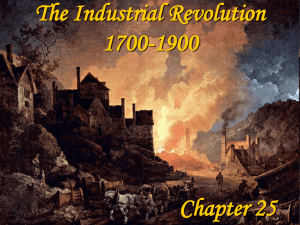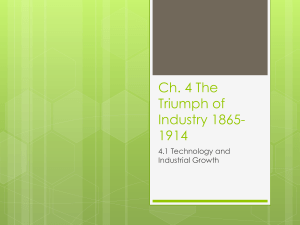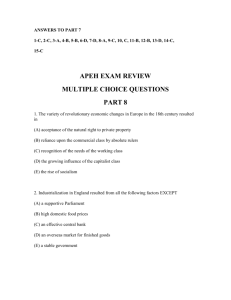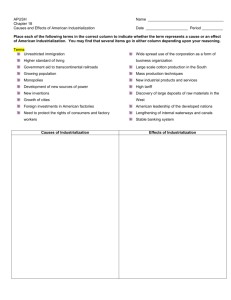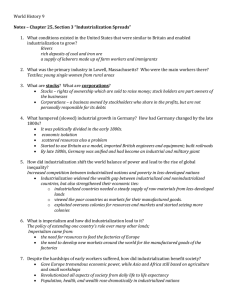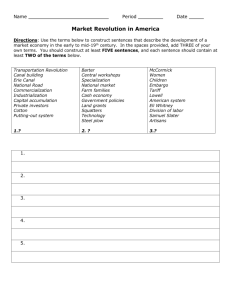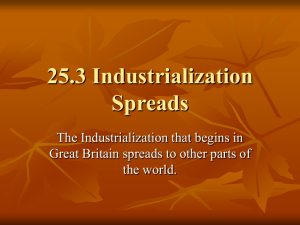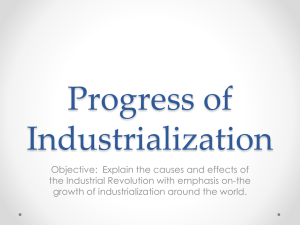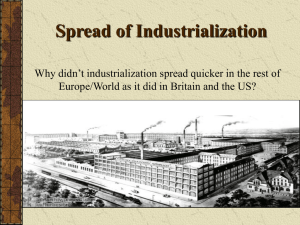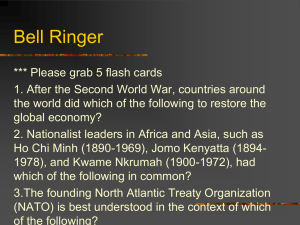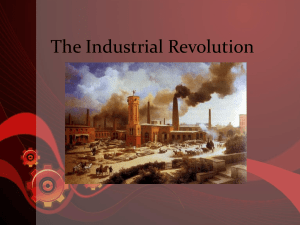The Spread of the Industrial Revolution
advertisement
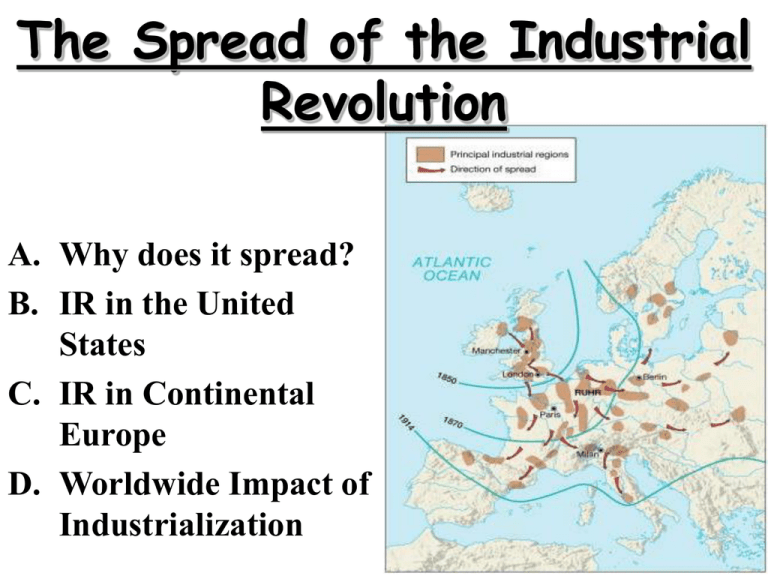
The Spread of the Industrial Revolution A. Why does it spread? B. IR in the United States C. IR in Continental Europe D. Worldwide Impact of Industrialization A. Why does it spread? • England will try to stop industrialization from spreading • Why? – because it made England the wealthiest nation in the world • England will ban people who have worked in the factories from leaving the country • Will not work – the IR will spread across the globe • Advances in science and technology will help the Industrial Revolution spread • Louis Pasteur – discovers that bacteria causes diseases (will help end the problem of cholera) • Henry Bessemer – discovers a way to produce steel a stronger metal than iron • Thomas Edison – discovers the light bulb and works to improve electricity • The Railroad will help the IR spread more than any other invention B. IR in the United States • IR begins in the U.S. because of Samuel Slater immigrating from England in 1791 • Problem: it is expensive to industrialize, so the IR slowly develops in the U.S. • The War of 1812 between England & the U.S. finally forced the U.S. to develop independent industries • Will follow England’s example of industrializing – Copy Machines – Start with the Textile Industry • Resources include iron, oil, water, and coal • The United States faced many of the same problems that England did: • Poor working conditions • Poor living conditions • Child Labor C. IR in Continental Europe • Continental Europe was slow to develop industrially because of the Napoleonic wars • Began in Belgium, then spread to the rest of the continent • Copied the British model by importing British equipment and engineers. • Germany was the next to industrialize • Industrialization spread through the rest of Europe by region rather than by country • There were pockets of industrialization throughout even when the majority of country was still rural and agricultural • Not all countries in Europe industrialized D. Worldwide Impact of Industrialization • Rise of Global Inequality – widened the gap between industrialized (rich) and non-industrialized (poor) nations • Industrialized nations began to compete to gain colonies for markets and resources
